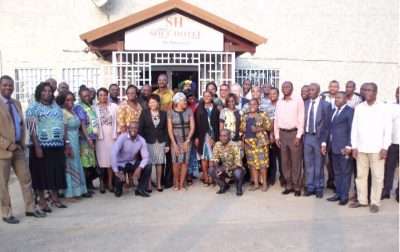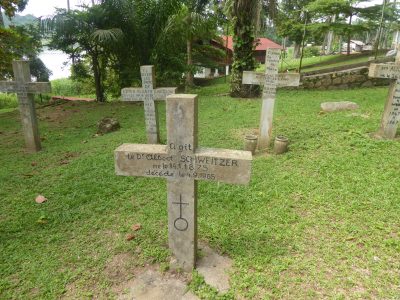The Government of Gabon with financial and technical support from the World Bank and SINA Health conducted the 57th two-week PBF course in Lambaréné, Gabon from the 16th of January to the 27th of January, 2017.
Hereby the course report (rapport du cours)
There were 33 participants from the national, regional, district and health facility levels. The purpose of the course is to familiarise the participants with the PBF reform approach and to create ownership for change.
The second objective is for the participants together with the PBF facilitation team to design a PBF pilot program for approximately 40% of the Gabonese population in 6 of the 10 regions. High-level MOH authorities are attending the course in preparation of a workshop with key national decision makers by the end of February.
Strong points of the course:
- The modules on the PBF best practices and PBF theories were well received and we believe that all participants have become PBF advocates. This increased the critical mass and created a more favourable climate for the start of the PBF in Gabon;
- The pre-test was a success;
- The separation in parallel sessions: regulation on one side and ACV on the other side has been beneficial;
- We have better kept the time compared to previous courses;
- We believe it is important to continue focusing on the module of microeconomics and health economics despite that many participants thought that this is a difficult subject. We suggest that a minimum knowledge of the economic laws is crucial for a better understanding of health systems in general and PBF in particular.
Points to improve
- Improve the translation into French from the English version of the textbook;
- Consider improvements in the parallel sessions: The separation during the second week between modules of the output indicators (module 12) and costing modules (module 13) on one side and the modules of business plans (module 14) and indices management tool (module 15) on the other side did not yet provide good results despite that this separation is inevitable due to the quickly growing mass of PBF knowledge and instruments.
- Present in a more focused fashion the main messages at the beginning and at the end of each module.
Main recommendations set up Gabon PBF pilot programme
- For the PBF pilot area, the overall population must be between 40% and 50%;
- Take into account economies of scale and geographical equity for the choice of the intervention area;
- Choose health catchment areas for the primary level of around 8,000 inhabitants;
- Urban health centres with principal contracts must sign secondary contracts with smaller health facilities in their catchment areas to increase the performance of the output and quality of the health packages
-
Leave in the beginning the University Health Facilities in Libreville outside the PBF programme. However, invite them for the PBF courses and seminars and include them only on their demand in the PBF program.





